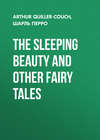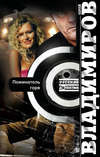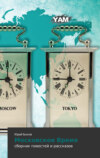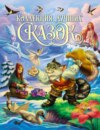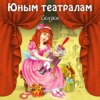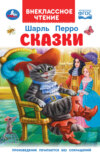Czytaj książkę: «The Sleeping Beauty and other fairy tales»
PREFACE
Once upon a time I found myself halting between two projects, both magnificent. For the first, indeed – which was to discover, digest and edit all the fairy tales in the world – I was equipped neither with learning, nor with command of languages, nor with leisure, nor with length of years. It is a task for many men, clubbing their lifetimes together. But the second would have cost me quite a respectable amount of toil; for it was to translate and annotate the whole collection of stories in the Cabinet des Fées.
Now the Cabinet des Fées, in the copy on my shelves, extends to forty-one volumes, printed, as their title-pages tell, at Geneva between the years 1785 and 1789, and published in Paris by M. Cuchet, Rue et Hôtel Serpente. The dates may set us moralising. While the Rue Serpente unfolded, as though its playful voluminous coils, the throne of France with the Ancien Régime rocked closer and closer to catastrophe. In 1789 (July), just as M. Cuchet (good man and leisurable to the end) wound up his series with a last volume of the Suite des Mille et Un Nuits, they toppled over with the fall of the Bastille.
Tranquilla per alta,
Even so in England – we may remind ourselves – in 1653, when the gods made Oliver Cromwell Protector, Izaak Walton chose to publish a book about little fishes. But the reminder is not quite apposite: for angling, the contemplative man's recreation, was no favourite or characteristic or symbolical pursuit of the Order which Cromwell overthrew (and, besides, he did not overthrow it); whereas, M. Cuchet's forty-one volumes most pertinently as well as amply illustrated some real qualities, and those the most amiable of the Ancien Régime. When we think of the French upper classes from the days of Louis xiv. to the Revolution, we associate them with a certain elegance, a taste fastidious and polite, if artificial, in the arts of living and the furniture of life; and in this we do them justice. But, if I mistake not, we seldom credit them with the quality which more than any other struck the contemporary foreign observer who visited France with a candid mind – I mean their good temper. We allow the Bastille or the guillotine to cast their shadows backward over this period, or we see it distorted in the glare of Burke's rhetoric or of Carlyle's lurid and fuliginous history. But if we go to an eyewitness, Arthur Young, who simply reported what he saw, having no rhetorical axe to grind or guillotine to sharpen, we get a totally different impression. The last of Young's Travels in France (1787–1789) actually coincided with the close of M. Cuchet's pleasant enterprise in publishing; and I do not think it fanciful to suppose that, had this very practical Englishman found time to read at large in the Cabinet des Fées, he would have discovered therein much to corroborate the evidence steadily and unconsciously borne by his own journals – that the urbanity of life among the French upper classes was genuine, reflecting a real and (for a whole society) a remarkable sunniness of disposition. Unconscious of their doom, the little victims played. But they did play; and they fell victims, not to their own passions, but to a form of government economically rotten.
Of all the volumes in the Cabinet, possibly the most famous are the first and second, containing the fairy tales of Charles Perrault and Madame d'Aulnoy, and vols. 7–11, containing M. Galland's version (so much better than any translation) of The Arabian Nights. I hope that one of those days Mr. Dulac will lay the public under debt by illustrating all these, and the stories of Antony Hamilton to boot. Meanwhile, here are three of the most famous tales from Perrault's wallet, and one, the evergreen Beauty and the Beast, by an almost forgotten authoress, Madame de Villeneuve.
The ghost of Charles Perrault, could it walk to-day —perruque and all – might well sigh over the vanity of human pretensions. For Monsieur Perrault was a person of importance in his lifetime (1628–1703), and a big-wig in every sense of the term. Colbert made him Secretary of the Academy of Inscriptions, and anon Controller of Public Works – in which capacity he suggested to his architect-brother, Claude Perrault, the facade of the Louvre with its renowned colonnade. He flattered his monarch with a poem Le Siècle de Louis le Grand. 'Je ne sais,' observes a circle, 'si ce roi, malgré son amour excessif pour la flatterie, fut content: les bornes étaient outre-passées.' The poem, as a poem, had little success; but by positing that the Age of Louis was the greatest in history, and suggesting that the moderns were as good as the ancients or better, it started a famous controversy. Boileau, Racine, La Bruyère, honoured him by taking the other side, and forced him to develop his paradox in a book of dialogues, Parallèles des Anciens et des Modernes. But his best answer was his urbane remark (for he kept his temper admirably) that these gentlemen did ill to dispute the superiority of the moderns while their own works gave proof of it. He wrote other poems, other tractates (including one on the 'Illustrious Men of his Age'), besides occasional tracts on matters of high politics: and his memory is kept alive by one small packet of fairy-tales – stories which he heard the nurse telling his little boy, and set down upon paper for a recreation! That is the way with literary fame. To take an English example: it is odds that Southey, poet-laureate and politician of great self-importance in his day, will come finally to be remembered by his baby-story of The Three Bears. It will certainly outlive Thalaba the Destroyer, and possibly even the Life of Nelson.
As for Gabrielle Susanne, wife of M. de Gallon, Seigneur de Villeneuve and lieutenant-colonel of infantry (whom she outlived), she wrote a number of romantic stories —Le Phénix Conjugal, Le Juge Parvenu, Le Beau-Frère Supposé, La Jardinière de Vincennes, Le Prince Azerolles, etc. I am not – perhaps few are – acquainted with these works. Madame de Villeneuve died in 1755 and lives only by grace of her La Belle et La Bête; and that again lives in despite of its literary defects. It has style; but the style inheres neither in its language, which is loose, nor in its construction. The story, as she wrote it, tails off woefully and drags to an end in mere foolishness.
Since Perrault, who is usually accepted as the fountainhead of these charming French fairy-stories, belongs almost entirely to the seventeenth century, it may be asked why Mr. Dulac has chosen to depict his Princes and Princess in costumes of the eighteenth? Well, for my part, I hold that he has obeyed a just instinct in choosing the period when the literature he illustrates was at the acme of its vogue. But his designs, in every stroke of which the style of that period is so unerringly felt, provide his best apology.
My own share in this volume is, perhaps, less easily defended. I began by translating Perrault's tales, very nearly word for word; because to me his style has always seemed nearly perfect for its purpose; and the essence of 'style' in writing is propriety to its purpose. On the other hand the late M. Ferdinand Brunetière has said that Perrault's is 'devoid of charm,' and on this subject M. Brunetière's opinion must needs out-value mine ten times over. Certainly the translations, when finished, did not satisfy me, and so I turned back to the beginning and have rewritten the stories in my own way, which (as you may say with the Irish butler) 'may not be the best claret, but 'tis the best ye've got.'
I have made bold, too, to omit Perrault's conclusion of La Belle au Bois Dormant. To my amazement the editor of the Cabinet des Fées selects this lame sequel – it is no better than a sequel – of a lovely tale, and assigns to it the credit of having established 'la véritable fortune de ce genre.' Frankly, I cannot believe him. Further, I have condensed Madame de Villeneuve's narrative and obliterated its feeble ending. In taking each of these liberties I have the warrant of tradition, which in the treatment of fairy-tales speaks with a voice more authoritative than the original author's, for it speaks with the united voices of many thousands of children, his audience and best critics. As the children have decreed that in Southey's tale of The Three Bears the heroine shall be a little girl, and not, as Southey invented her, a good-for-nothing old woman, so they have decreed the story of The Sleeping Beauty to end with the Prince's kiss, and that of Beauty and the Beast with the Beast's transformation. And as Beauty and the Beast is really but a variant of the immortal fable of Cupid and Psyche, I might – had I room to spare – attempt to prove to you that the children's taste is here, as usually, right and classical.
ARTHUR QUILLER-COUCH
THE SLEEPING BEAUTY
Once upon a time there lived a King and a Queen, who lacked but one thing on earth to make them entirely happy. The King was young, handsome, and wealthy; the Queen had a nature as good and gentle as her face was beautiful; and they adored one another, having married for love – which among kings and queens is not always the rule. Moreover, they reigned over a kingdom at peace, and their people were devoted to them. What more, then, could they possibly want?
Well, they wanted one thing very badly, and the lack of it grieved them more than words can tell. They had no child. Vows, pilgrimages, all ways were tried; yet for a long while nothing came of it all, and the poor Queen especially was in despair.
At last, however, to her own and her husband's inexpressible joy, she gave birth to a daughter. As soon as the palace guns announced this event, the whole nation went wild with delight. Flags waved everywhere, bells were set pealing until the steeples rocked, crowds tossed up their hats and cheered, while the soldiers presented arms, and even strangers meeting in the street fell upon each other's neck, exclaiming: 'Our Queen has a daughter! Yes, yes – Our Queen has a daughter! Long live the little Princess!'
A name had now to be found for the royal babe; and the King and Queen, after talking over some scores of names, at length decided to call her Aurora, which means The Dawn. The Dawn itself (thought they) was never more beautiful than this darling of theirs. The next business, of course, was to hold a christening. They agreed that it must be a magnificent one; and as a first step they invited all the Fairies they could find in the land to be godmothers to the Princess Aurora, that each one of them might bring her a gift, as was the custom with Fairies in those days, and so she might have all the perfections imaginable. After making long inquiries – for I should tell you that all this happened not so many hundred years ago, when Fairies were already growing somewhat scarce – they found seven. But this again pleased them, because seven is a lucky number.
After the ceremonies of the christening, while the trumpeters sounded their fanfares and the guns boomed out again from the great tower, all the company returned to the Royal Palace to find a great feast arrayed. Seats of honour had been set for the seven fairy godmothers, and before each was laid a dish of honour, with a dish-cover of solid gold, and beside the dish a spoon, a knife, and a fork, all of pure gold and all set with diamonds and rubies. But just as they were seating themselves at table, to the dismay of every one there appeared in the doorway an old crone, dressed in black and leaning on a crutched stick. Her chin and her hooked nose almost met together, like a pair of nut-crackers, for she had very few teeth remaining; but between them she growled to the guests in a terrible voice:
'I am the Fairy Uglyane! Pray where are your King's manners, that I have not been invited?'
She had in fact been overlooked; and this was not surprising, because she lived at the far end of the country, in a lonely tower set around by the forest. For fifty years she had never come out of this tower, and every one believed her to be dead or enchanted. That, you must know, is the commonest way the Fairies have of ending: they lock themselves up in a tower or within a hollow oak, and are never seen again.
The King, though she chose to accuse his manners, was in fact the politest of men. He hurried to express his regrets, led her to table with his own hand, and ordered a dish to be set for her; but with the best will in the world he could not give her a dish-cover such as the others had, because seven only had been made for the seven invited Fairies. The old crone received his excuses very ungraciously, while accepting a seat. It was plain that she had taken deep offence. One of the younger Fairies, Hippolyta by name, who sat by, overheard her mumbling threats between her teeth; and fearing she might bestow some unlucky gift upon the little Princess, went as soon as she rose from table and hid herself close by the cradle, behind the tapestry, that she might have the last word and undo, so far as she could, what evil the Fairy Uglyane might have in her mind.
She had scarcely concealed herself before the other Fairies began to advance, one by one, to bestow their gifts on the Princess. The youngest promised her that she should be the most beautiful creature in the world; the next, that she should have the wit of an angel; the third, a marvellous grace in all her ways; the fourth, that she should dance to perfection; the fifth, that she should sing like a nightingale; the sixth, that she should play exquisitely on all instruments of music.
Now came the turn of the old Fairy Uglyane. Her head nodded with spite and old age together, as she bent over the cradle and shook her crutched staff above the head of the pretty babe, who slept on sweetly, too young and too innocent as yet to dream of any such thing as mischief in this world.
'This is my gift to you, Princess Aurora,' announced the hag, still in her creaking voice that shook as spitefully as her body. 'I promise that one day you shall pierce your hand with a spindle, and on that day you shall surely die!'
At these terrible words the poor Queen fell back fainting into her husband's arms. A trembling seized the whole Court; the ladies were in tears, and the younger lords and knights were calling out to seize and burn the wicked witch, when the young Fairy stepped forth from behind the tapestry, and passing by Uglyane, who stood scornful in the midst of this outcry, she thus addressed their Majesties:
'Take comfort, O King and Queen: your daughter shall not die thus. It is true, I have not the power wholly to undo what this elder sister of mine has done. The Princess must indeed pierce her hand with a spindle; but, instead of dying, she shall only fall into a deep slumber that shall last for many, many years, at the end of which a King's son shall come and awake her. Whenever this misfortune happens to your little Aurora, do not doubt that I, the Fairy Hippolyta, her godmother, shall get news of it and come at once to render what help I may.'
Her head nodded with spite and old age together, as she bent over the cradle.
The King, while declaring himself infinitely obliged to the good Fairy Hippolyta, could not help feeling that hers was but cold comfort at the best. He gave orders to close the christening festivities at once, although the Fairy Uglyane, their spoil-joy, had already taken her departure; passing unharmed through the crowd of folk, every one of whom wished her ill, and riding away – it was generally agreed-upon a broomstick.
To satisfy the King's faithful subjects, however, – who were unaware of any misadventure – the palace fireworks were duly let off, with a grand set-piece wishing Long Life to the Princess Aurora! in all the colours of the rainbow. But His Majesty, after bowing from the balcony amid the banging of rockets and hissing of Catherine wheels, retired to a private room with his Chamberlain, and there, still amid the noise of explosions and cheering, drew up the first harsh proclamation of his reign. It forbade every one, on pain of death, to use a spindle in spinning or even to have a spindle in his house. Heralds took copies of this proclamation and marched through the land reading it, to the sound of trumpets, from every market-place: and it gravely puzzled and distressed all who listened, for their women folk prided themselves on their linen. Its fineness was a byword throughout the neighbouring kingdoms, and they knew themselves to be famous for it. 'But what sort of linen,' said they, 'would His Majesty have us spin without spindles?'
They had a great affection, however (as we have seen), for their monarch; and for fifteen or sixteen years all the spinning-wheels were silent throughout the land. The little Princess Aurora grew up without ever having seen one. But one day – the King and Queen being absent at one of their country houses – she gave her governess the slip, and running at will through the palace and upstairs from one chamber to another, she came at length to a turret with a winding staircase, from the top of which a strange whirring sound attracted her and seemed to invite her to climb. As she mounted after the sound, on a sudden it ceased; but still she followed the stairs and came, at the very top, to an open door through which she looked in upon a small garret where sat an honest old woman alone, winding her distaff. The good soul had never, in sixteen years, heard of the King's prohibition against spindles; and this is just the sort of thing that happens in palaces.
'What are you doing, goody?' asked the Princess.
'I am spinning, pretty one,' answered the old woman, who did not know who she was.
'Spinning? What is that?'
'I wonder sometimes,' said the old woman, 'what the world is coming to, in these days!' And that, of course, was natural enough, and might occur to anybody after living so long as she had lived in a garret on the top of a tower. 'Spinning,' she said wisely, 'is spinning, or was; and, gentle or simple, no one is fit to keep house until she has learnt to spin.'
'But how pretty it is!' said the Princess. 'How do you do it? Give it to me and let me see if I can do so well.'
She had no sooner grasped the spindle – she was over-eager perhaps, or just a little bit clumsy, or maybe the fairy decree had so ordained it – than it pierced her hand and she dropped down in a swoon.
The old trot in a flurry ran to the head of the stairs and called for help. There was no bell rope, and, her voice being weak with age and her turret in the remotest corner of the palace, it was long before any one heard her in the servants' hall. The servants, too – in the absence of the King and Queen– were playing cards, and could not be interrupted by anybody until their game was finished. Then they sat down and discussed whose business it was to attend on a call from that particular turret; and this again proved to be a nice point, since nobody could remember having been summoned thither, and all were against setting up a precedent (as they called it). In the end they decided to send up the lowest of the junior page-boys. But he had a weakness which he somehow forgot to mention – that of fainting at the sight of blood. So when he reached the garret and fainted, the old woman had to begin screaming over again.
This time they sent up a scullery maid; who, being good-natured and unused to the ways of the palace, made the best haste she could to the garret, whence presently she returned with the terrible news. The servants, who had gone back to their game, now dropped their cards and came running. All the household, in fact, came pouring up the turret stairs; the palace physicians themselves crowding in such numbers that the poor Princess Aurora would have been hard put to it for fresh air could fresh air have restored her. They dashed water on her face, unlaced her, slapped her hands, tickled the soles of her feet, burned feathers under her nose, rubbed her temples with Hungary-water. They held consultations over her, by twos and threes, and again in Grand Committee. But nothing would bring her to.
Meanwhile, a messenger had ridden off posthaste with the tidings, and while the doctors were still consulting and shaking their heads the King himself came galloping home to the palace. In the midst of his grief he bethought him of what the Fairies had foretold; and being persuaded that, since they had said it, this was fated to happen, he blamed no one but gave orders to carry the Princess to the finest apartment in the palace, and there lay her on a bed embroidered with gold and silver.
At sight of her, she was so lovely, you might well have supposed that some bright being of the skies had floated down to earth and there dropped asleep after her long journey. For her swoon had not taken away the warm tints of her complexion: her cheeks were like carnations, her lips like coral: and though her eyes were closed and the long lashes would not lift, her soft breathing told that she was not dead. The King commanded them all to leave her and let her sleep in peace until the hour of her awakening should arrive.
Now when the accident befell our Princess the good Fairy Hippolyta, who had saved her life, happened to be in the Kingdom of Mataquin, twelve thousand leagues away; but news of it was brought to her in an incredibly short space of time by a little dwarf who owned a pair of seven-league boots. (These were boots in which you could walk seven leagues at a single stride.) She set off at once to the help of her beloved goddaughter, and behold in an hour this good Fairy arrived at the palace, in a fiery chariot drawn by dragons.
Our King met her and handed her down from the chariot. She approved of all that he had done; but, greatly foreseeing as she was, she bethought her that, as all mortals perish within a hundred years or so, when the time came for the Princess to awake she would be distressed at finding herself orphaned and alone in this old castle.
So this is what she did. She touched with her wand everything and everybody in the palace: the King, the Queen; the ministers and privy councillors; the archbishop (who was the Grand Almoner), the bishops and the minor clergy; the maids-of-honour, ladies of the bedchamber, governesses, gentlemen-in-waiting, equerries, heralds, physicians, officers, masters of the household, cooks, scullions, lackeys, guards, Switzers, pages, footmen. She touched the Princess's tutors and the Court professors in the midst of their deep studies. She touched likewise all the horses in the stables, with the grooms; the huge mastiffs in the yard; even Tiny, the Princess's little pet dog, and Fluff, her black-and-white cat, that lay coiled on a cushion by her bedside.
The instant the Fairy Hippolyta touched them they all fell asleep, not to awake until the same moment as their mistress, that all might be ready to wait on her when she needed them. The very spits at the fire went to sleep, loaded as they were with partridges and pheasants; and the fire went to sleep too. All this was done in a moment: the Fairies were never long about their business in those days.
But it so happened that one of the King's councillors, the Minister of Marine (his office dated from a previous reign when the kingdom had hoped to conquer and acquire a seaboard) had overslept himself that morning and came late to the palace without any knowledge of what had befallen. He felt no great fear that his unpunctuality would be remarked, the King (as he supposed) being absent in the country; nevertheless he took the precaution of letting himself in by a small postern door, and so missed being observed by the Fairy and touched by her wand. Entering his office, and perceiving that his under-secretary (usually so brisk) and all his clerks rested their heads on their desks in attitudes of sleep, he drew the conclusion that something had happened, for he was an excellent judge of natural slumber. The farther he penetrated into the palace, the stronger his suspicions became. He withdrew on tiptoe. Though by nature and habit a lazy man, he was capable of sudden decision, and returning to his home he caused notices to be posted up, forbidding any one to approach the castle, the inmates of which were suffering from an Eastern but temporary affliction known as the Sleeping Sickness.
These notices were unnecessary, for within a few hours there grew up, all around the park, such a number of trees of all sizes, and such a tangle of briars and undergrowth, that neither beast nor man could find a passage. They grew until nothing but the tops of the castle towers could be seen, and these only from a good way off. There was no mistake about it: the Fairy had done her work well, and the Princess might sleep with no fear of visits from the inquisitive.
One day, many, many years afterwards, the incomparable young Prince Florimond happened to ride a-hunting on that side of the country which lay next to the tangled forest, and asked: 'What were those towers he saw pushing up above the midst of a great thick wood? '
They all answered him as they heard tell. Some said it was an old castle haunted by ghosts.
Others, that all the wizards and witches of the country met there to keep Sabbath.
The most general opinion was that an Ogre dwelt there, and that he carried off thither all the children he could catch, to eat them at his ease. No one could follow him, for he alone knew how to find a passage through the briars and brambles. The Prince could not tell which to believe of all these informants, for all gave their versions with equal confidence, as commonly happens with those who talk on matters of which they can know nothing for certain. He was turning from one to another in perplexity, when a peasant spoke up and said: —
'Your Highness, long ago I heard my father tell that there was in yonder castle a Princess, the most beautiful that ever man saw; that she must lie asleep there for many, many years; and that one day she will be awakened by a King's son, for whom she was destined.'
At these words Prince Florimond felt himself a-fire. He believed, without weighing it, that he could accomplish this fine adventure; and, spurred on by love and ambition, he resolved to explore then and there and discover the truth for himself.
